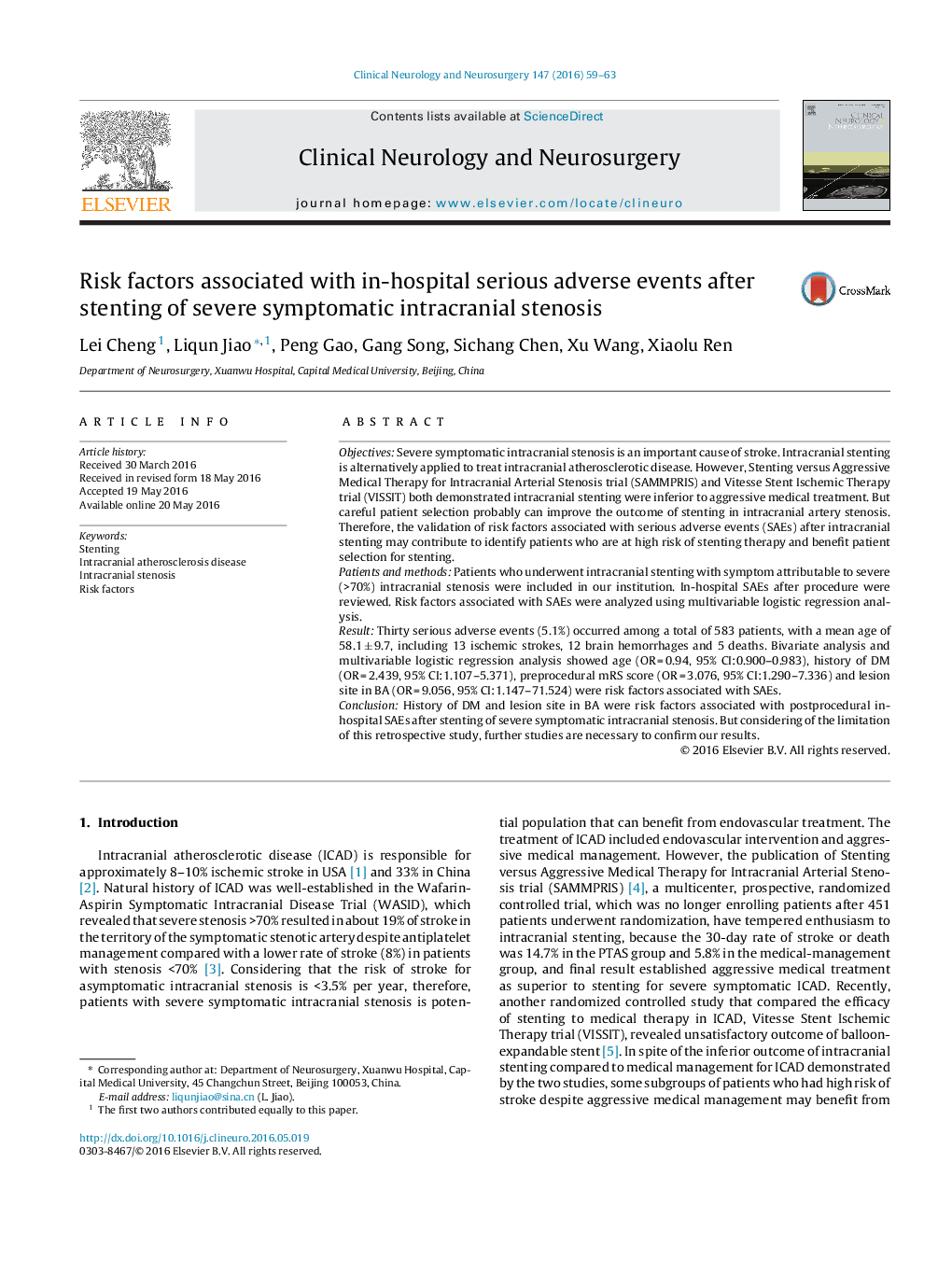| Article ID | Journal | Published Year | Pages | File Type |
|---|---|---|---|---|
| 6006352 | Clinical Neurology and Neurosurgery | 2016 | 5 Pages |
â¢Risk factors associated with in-hospital serious adverse events were analyzed.â¢Our study enrolled 583 patients with symptomatic severe intracranial artery stenosis.â¢The study was helpful to patient selection for intracranial stenting.
ObjectivesSevere symptomatic intracranial stenosis is an important cause of stroke. Intracranial stenting is alternatively applied to treat intracranial atherosclerotic disease. However, Stenting versus Aggressive Medical Therapy for Intracranial Arterial Stenosis trial (SAMMPRIS) and Vitesse Stent Ischemic Therapy trial (VISSIT) both demonstrated intracranial stenting were inferior to aggressive medical treatment. But careful patient selection probably can improve the outcome of stenting in intracranial artery stenosis. Therefore, the validation of risk factors associated with serious adverse events (SAEs) after intracranial stenting may contribute to identify patients who are at high risk of stenting therapy and benefit patient selection for stenting.Patients and methodsPatients who underwent intracranial stenting with symptom attributable to severe (>70%) intracranial stenosis were included in our institution. In-hospital SAEs after procedure were reviewed. Risk factors associated with SAEs were analyzed using multivariable logistic regression analysis.ResultThirty serious adverse events (5.1%) occurred among a total of 583 patients, with a mean age of 58.1 ± 9.7, including 13 ischemic strokes, 12 brain hemorrhages and 5 deaths. Bivariate analysis and multivariable logistic regression analysis showed age (OR = 0.94, 95% CI:0.900-0.983), history of DM (OR = 2.439, 95% CI:1.107-5.371), preprocedural mRS score (OR = 3.076, 95% CI:1.290-7.336) and lesion site in BA (OR = 9.056, 95% CI:1.147-71.524) were risk factors associated with SAEs.ConclusionHistory of DM and lesion site in BA were risk factors associated with postprocedural in-hospital SAEs after stenting of severe symptomatic intracranial stenosis. But considering of the limitation of this retrospective study, further studies are necessary to confirm our results.
